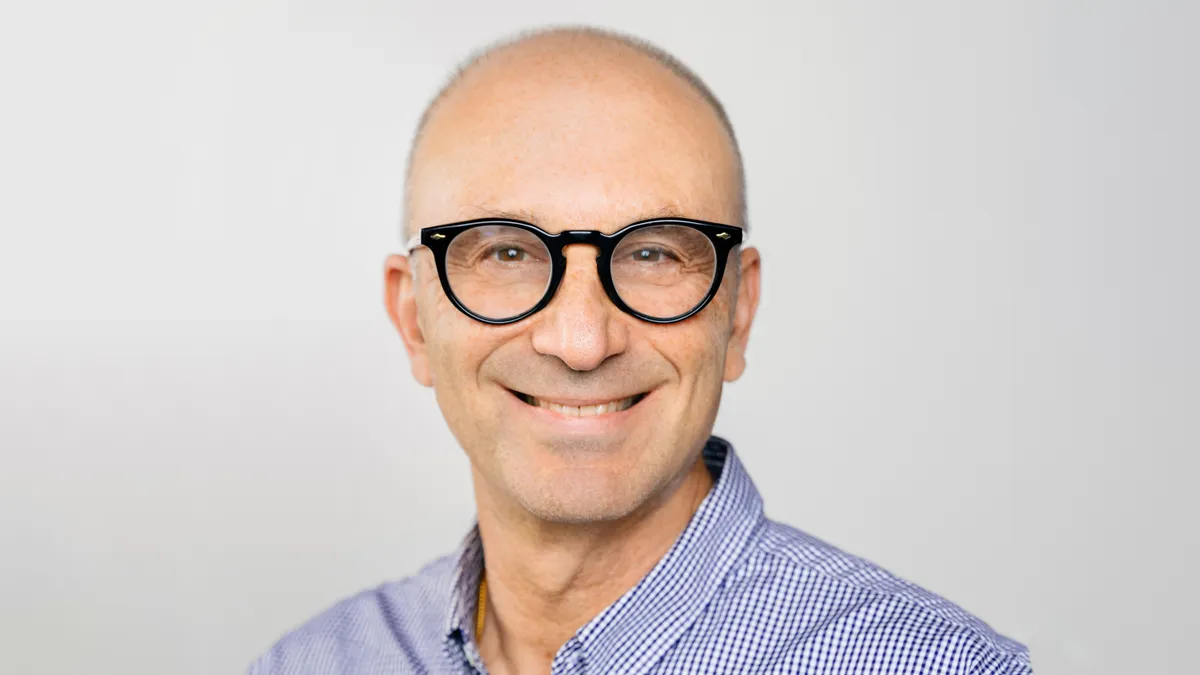Karate is, in many ways, a solitary pursuit. Alone in the sparring arena with only an opponent and no one to hide behind, a martial artist relies solely on training and character to succeed.
“I guess that’s the same as being CEO — you’re quite exposed, and you have to be comfortable with that level of exposure,” said Richard Godfrey, CEO of IRLAB Therapeutics, a Swedish clinical-stage biotech specializing in the development of drugs for Parkinson's disease and other disorders of the brain. “It’s quite a lonely place to be very often. A lot of eyes on you. A lot of people have high expectations of you.”
In fact, Godfrey sees many parallels between his career as a leader and his lifelong passion for karate.
“You need to have confidence, humility (and) tremendous integrity,” he said.
Godfrey took on the role of CEO for IRLAB Therapeutics in July 2022 after more than two decades of leadership roles in the international biotech and pharmaceutical industry, including stints at Catalent Pharma Solutions and BerGenBio.
“I was keen to work for a company that was clinical-stage but also had a discovery engine and was working in areas of significant unmet need,” he said.
IRLAB Therapeutics certainly ticks all those boxes. The company’s work is rooted in research of Professor Arvid Carlsson, whose discoveries with the neurotransmitter dopamine and its effects in Parkinson's disease earned him the Nobel Prize in Physiology or Medicine in 2000. IRLAB’s co-founders, who are also members of its management team, worked in Carlsson’s research group.
Today, they’re working to translate those groundbreaking discoveries into drugs that could have a transformative impact on patients.

Improving quality of life
Carlsson’s research showed that Parkinson's disease symptoms are caused by a deficit of the neurotransmitter dopamine in the brain — an issue IRLAB’s drugs were developed to counteract. The company just concluded a phase 2b study for its drug candidate mesdopetam, which aims to treat levodopa-induced dyskinesias (LIDs) — severe forms of involuntary movements in Parkinson’s disease patients. Godfrey said he expects those results this month.
“In drug discovery and drug development, you have to have patience. You have to have a very, very acute attention to detail and getting it right."

Richard Godfrey
CEO, IRLAB Therapeutics
In 2021, IRLAB licensed the exclusive global development and commercialization rights for mesdopetam to specialty pharma company Ipsen, which will be responsible for phase 3 preparatory activities as well as all remaining clinical development and worldwide commercialization, the company said on its website.
Another drug in its pipeline is pirepemat, which it is developing to improve balance and reduce falls in people with Parkinson’s disease. It’s currently in a phase 2b study expected to yield results by the end of 2023.
Parkinson’s mechanisms are largely a mystery and there is no cure, so current treatments focus on managing symptoms. Both mesdopetam and pirepemat address debilitating symptoms of the disease that have stymied drug developers for decades. There are currently only a handful of treatments for LIDs, but mesdopetam’s phase 2a study reported an additional 2.8 hours of what’s called “good on-time” — or time when a medication is working effectively.
“Even one hour of additional good on-time and reducing the bad on-time would be quite transformative for a patient,” Godfrey said.
A 2022 study in the journal Neurology showed that hour increases in good on-time was “significantly associated” with positive outcomes, such as fewer falls, and greater reports of independence for activities of daily living in patients with advanced Parkinson’s.
Meeting unmet needs
While the approved treatment landscape for LIDs is thin, it’s nonexistent for improving balance and reducing falls.
“We’re the first company in the world to develop a drug specifically for postural instability and falls frequency,” Godfrey said.
Early results for pirepemat are also promising. Godfrey said their preclinical and phase 2a data saw a 35% improvement in balance and 53% reduction in falls frequency, as well as major improvements in patient apathy and caregiver distress.
“It’s transformative for the patient’s quality of life,” Godfrey said.
Reducing fall frequency would also reduce healthcare costs, he added. Research in the Journal of the American Geriatrics Society showed that the U.S. healthcare system spends $50 billion annually on medical costs related to non-fatal fall injuries and $754 million related to fatal falls.
In addition to being a clinical-stage company working to solve unmet patient needs, Godfrey was also drawn to IRLAB’s proprietary research platform, dubbed the Integrative Screening Process (ISP). With a unique, standardized database of central nervous system compounds and classes collected over the course of 25 years, the platform phenotypically screens drug compounds and, from that, generates candidates.
“We end up with molecules that have the best biological fit to deliver the phenotype or the behavioral change or the neurochange that we’re looking for,” Godfrey said.
The philosophy of martial arts
Godfrey has been a martial artist for most of his life — he was the under-21 British champion and a member of the British national squad — and has been able to apply the tenets and philosophies of karate into his work in biotech leadership.
“In drug discovery and drug development, you have to have patience. You have to have a very, very acute attention to detail and getting it right,” he said. “There are some parallels there in martial arts. You never stop learning, and many people say you never stop learning about a compound or biology you’re studying.”
He sees similarities elsewhere, too.
“I think there’s a lot of parallels there in terms of character, who you are and how you present yourself,” he said.
He recalled one incident in a previous role when a problem arose with a huge order for a very large customer.
“There were lots of things one could have done. We could have sent an email, we could have made a phone call,” he said. Instead, he said, “The first thing I did was jump on a plane and fly to Los Angeles to go see the customer.”
Because he was “completely transparent, completely honest, humble, apologetic, and there to … see how we can make it right,” the customer was “grateful and impressed that I made that … effort to go see them in person; didn’t send somebody else, didn’t do it by email.”
It’s that kind of integrity that he’s carried with him throughout his life and career, and it’s especially important in drug development because you’re dealing with patient lives.
“You can draw on the inner strength that you have,” he said.



















